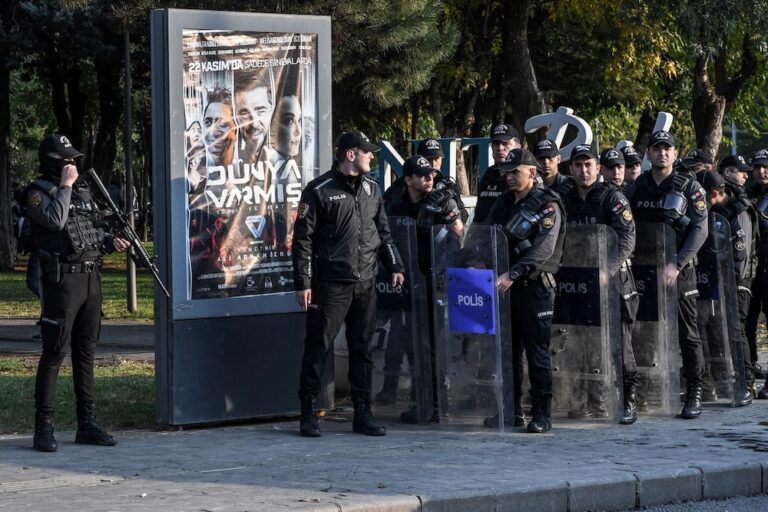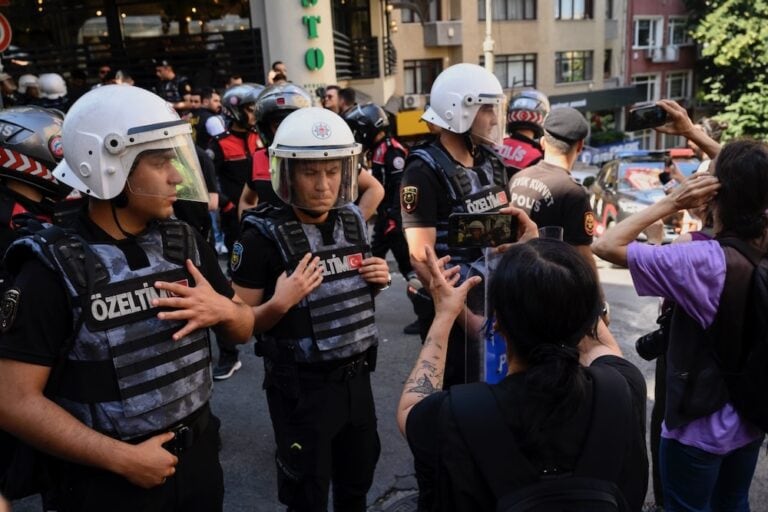(BIANET/IFEX) – The Istanbul 13th Heavy Penal Court has handed down one-month publication bans to two newspapers for allegedly spreading PKK propaganda. On 11 April 2009, the Istanbul 13th Heavy Penal Court decreed that the daily “Kurdish Azadiya Welat” newspaper and the weekly “Özgür Mezopotamya” (Free Mesopotamia), which had just started operating, be banned from […]
(BIANET/IFEX) – The Istanbul 13th Heavy Penal Court has handed down one-month publication bans to two newspapers for allegedly spreading PKK propaganda.
On 11 April 2009, the Istanbul 13th Heavy Penal Court decreed that the daily “Kurdish Azadiya Welat” newspaper and the weekly “Özgür Mezopotamya” (Free Mesopotamia), which had just started operating, be banned from publishing for one month.
Emine Demir, license holder and editor of the “Azadiya Welat” newspaper, said that this ban showed the insincerity of the government’s attempts at a solution to the Kurdish question.
The court said that the newspaper had reported announcements of the PKK and spread organisational propaganda on seven of its pages, thus violating Anti-Terrorism Law No. 3713.
One reason given for the banning of “Özgür Mezopotamya” was a feature on the families of two young men, Mustafa Dag and Mahsum Karaoglan, who died when the police intervened in a march to the natal village of imprisoned PKK leader Abdullah Öcalan on his 60th birthday. Another news item which pointed to 31 locations in the Cizre and Silopi districts of the southeastern Sirnak province as mass graves was also considered a violation of the law.
A news item on the eighth page which discussed the results of a survey on Barack Obama in the USA, entitled “Winds of Socialism in the USA” (Bayê sosyalîzmê li Amerîkayê gur dibe), was also considered part of the “organisational propaganda”.
In the 11 April issue of “Azadiya Welat”, articles on pages one to six and eight were also considered “organisational propaganda”.
An interview with Abdullah Öcalan’s lawyers, commemoration adverts, another article on Obama and thank-you advertisements by winning mayoral candidates of the pro-Kurdish Democratic Society Party (DTP) were all part of the indictment.
Demir criticised the fact that the government was now running a Kurdish TV channel (TRT 6) and had opened Kurdology departments at universities, but was banning the only newspaper in Kurdish, saying that this showed the insincerity of the government.
Referring to the fact that one reason for the publication ban was statements by Öcalan, Demir argued that even members of Parliament of the ruling Justice and Development Party (AKP) were saying that a solution to the Kurdish question needed to take the PKK into account. “All newspapers show Öcalan’s photos and cite his statements. It is normal for us to cover Öcalan’s statements, both because of demands of our readers and because Öcalan is a part of the solution. This decision is antidemocratic.”


